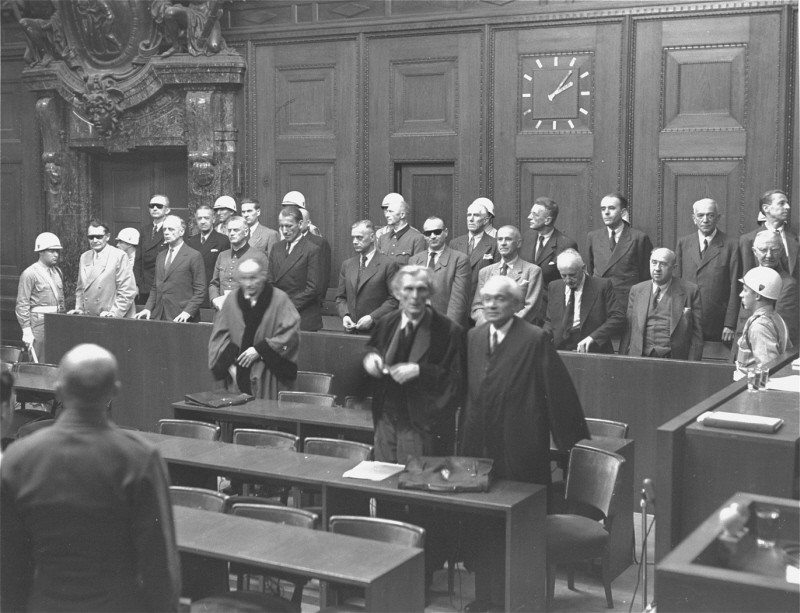
Hans Fritzsche
In the immediate aftermath of the Holocaust, the world was faced with a challenge—how to hold individually accountable those German leaders who were responsible for the commission of monstrous crimes against humanity and international peace. The International Military Tribunal (IMT) held in Nuremberg, Germany, attempted to face this immense challenge. On October 18, 1945, the chief prosecutors of the IMT brought charges against 24 leading German officials, among them Hans Fritzsche.
Hans Fritzsche (1900–1953) was head of the radio division of the German propaganda ministry. A relatively minor propaganda ministry official who had not held a policy-making position, Fritzsche was included in the dock at Nuremberg in the absence of the deceased Joseph Goebbels and to mollify Soviet authorities, who held him in their custody.
Although he was acquitted by the International Military Tribunal, Fritzsche was then arrested again and brought before West German denazification courts. He was sentenced to nine years imprisonment, but was released early in September 1950.
Critical Thinking Questions
How were various professions involved in implementing Nazi policies and ideology? What lessons can be considered for contemporary professionals?
What pressures and motivations may have affected Fritzsche's choices before and during the war?
Is there a direct link between words and actions? Can words and images inspire people to commit acts of genocide?
Beyond the verdicts, what impact can trials have?

